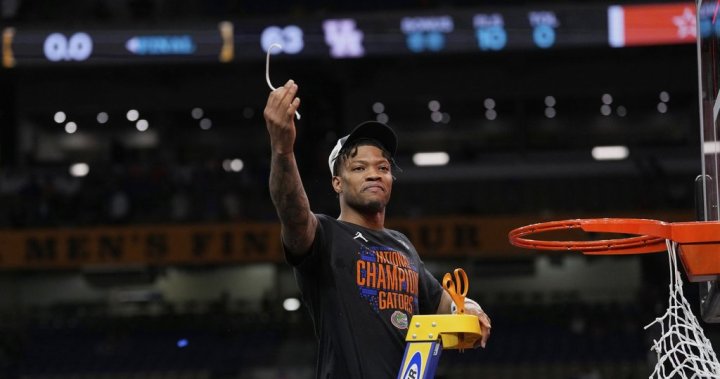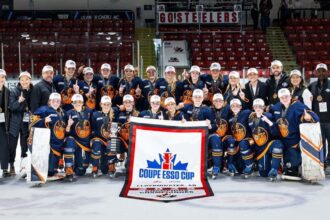In a strategic move that speaks volumes about their developmental pipeline, the Toronto Raptors have signed rising guard Javon Freeman-Liberty to a two-way contract, the team announced Wednesday. The signing comes after Freeman-Liberty’s impressive showing with the Raptors 905, where his dynamic playmaking and scoring ability have turned heads throughout the organization.
Freeman-Liberty, who went undrafted out of DePaul University, has been quietly building his case as one of the G League’s most intriguing prospects. His journey represents the increasingly vital development pathway that organizations like the Raptors have mastered in recent years – finding diamonds in the rough and polishing them through their developmental system rather than solely relying on high-profile acquisitions.
“This signing reflects Toronto’s long-standing commitment to player development,” says veteran NBA scout Marcus Thompson. “The Raptors have consistently shown they can identify talent that other teams overlook and create pathways for these players to contribute at the highest level.”
What makes Freeman-Liberty particularly interesting is his versatility as a combo guard who can create his own shot while also facilitating for others. Standing at 6-foot-4, he possesses the size to defend multiple positions – a quality that aligns perfectly with Toronto’s defensive identity built under team president Masai Ujiri’s vision.
The two-way contract structure, introduced in 2017, has revolutionized how NBA teams develop talent. These contracts allow players to move between the NBA roster and the organization’s G League affiliate, providing valuable experience at both levels while limiting the time they can spend with the parent club. For young players like Freeman-Liberty, this represents the perfect opportunity to continue developing while getting occasional tastes of NBA competition.
This signing also signals Toronto’s continued commitment to its rebuild following the departure of franchise cornerstone Fred VanVleet. The organization appears to be focusing on cultivating young talent rather than making splashy free-agent signings – a strategy that paid dividends during their 2019 championship run, which featured several players who had developed through their system.
For fans following Toronto’s evolution, this move should inspire optimism. While the team navigates through a transitional period, their ability to identify and develop players like Freeman-Liberty suggests the foundation for future success remains intact. The Raptors’ cultural approach to player development has become something of a model throughout the league.
Freeman-Liberty will now have the opportunity to split time between the Raptors and their G League affiliate, gaining valuable experience while the organization evaluates his potential as a long-term piece. For a team in Toronto’s position – young, developing, and searching for their next core – these types of signings represent low-risk, high-reward propositions that could yield significant dividends.
As Toronto continues navigating the current trends in NBA team building, the emphasis on development over immediate results signals a patient approach that prioritizes sustainability. While fans might be eager for immediate success, these foundational moves suggest the organization is playing the long game – building methodically rather than chasing quick fixes.
Whether Freeman-Liberty develops into a rotation player or a temporary solution, his signing reinforces something Raptors fans should feel confident about: the organization’s player evaluation and development system remains among the league’s most sophisticated. In the ever-evolving landscape of professional basketball, that might be the most valuable asset of all.
What do you think about Toronto’s developmental approach? Is patience the right strategy, or should they be more aggressive in pursuing established talent? These questions will continue to shape the ongoing conversation about the team’s direction in the coming seasons.










